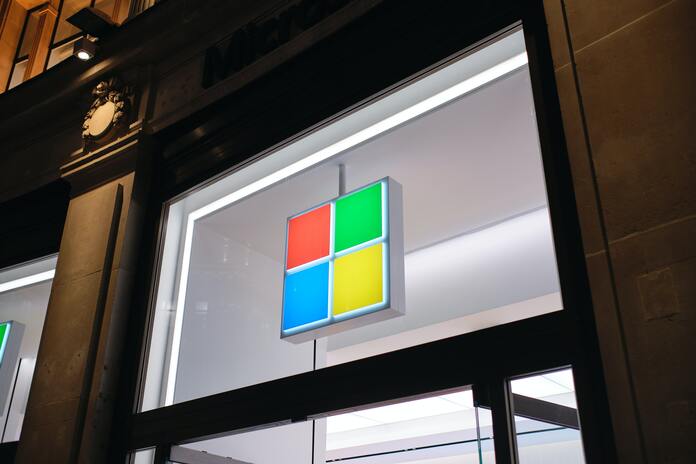
In principle, the more a firm expands, the more difficult it is to create market-beating returns. Nonetheless, even during a market collapse, Microsoft stock (NASDAQ: MSFT) demonstrated why it is the exception to the norm, defying critics and easily outperforming Wall Street’s predictions.
At the same time, the firm issued a warning about its future growth, driving its shares down.
Market Analysis of Microsoft Stock
The IT titan reported $50.1 billion in sales for its fiscal first quarter (ending September 30), increasing 11% year on year or 16% in constant currency. Simultaneously, diluted earnings per share (EPS) were $2.35, down 13% year on year or 7% in constant currency. Both measures are greatly above analysts’ average projections of $49.7 billion in revenue and $2.31 per share. Regrettably, this was also Microsoft’s worst pace of revenue increase in five years.
One of the most anticipated metrics in Microsoft’s report is the success of its intelligent cloud division, which earned $20.3 billion in sales, a 20% increase year over year. The segment’s standout was Azure cloud, which gained 35%.
Microsoft’s productivity and business processes sector, which includes Office commercial products, reported $16.5 billion in sales, a 9% increase. LinkedIn was the big performer, with revenue increasing 17% thanks to Talent Solutions, its job recruitment, and its hiring platform. Furthermore, LinkedIn sessions increased by 24% while maintaining record engagement.
Microsoft Stock: Concerns About Growth Loom.
If there was a weak link in the chain, the more personal computing area contributed $13.3 billion in sales, a little decrease. The downturn was caused by a falling PC industry, which saw fewer PCs supplied with Windows pre-installed. Xbox content and services contributed to the 3% drop. In the face of increasing inflation, consumers have cut down on spending in recent months, dragging on the category.
Microsoft also announced an increase in operational expenditures as a result of significant investments in Azure.
Investors are most worried about the company’s projection for its fiscal second quarter, which came in well below expectations. At the midpoint of its range, management expects sales of $52.85 billion, or 2% year-on-year growth, falling well short of analysts average expectations. (Analysts predicted $56.2 billion in sales, representing a 6% increase.)
The most concerning component of its prediction concerns its outstanding cloud division. CFO Amy Hood said, “We anticipate Azure revenue growth to be around five points lower sequentially on a constant currency basis.” This should raise some red flags since it predicts that cloud unit growth may decelerate to 30% in the current quarter.
Furthermore, Microsoft stock (NASDAQ: MSFT) is still experiencing foreign currency headwinds as a consequence of the strong dollar, resulting in a 5% drop in sales growth for the whole fiscal year.
Is Microsoft Stock a Good Investment?
Returning to the crucial investment issue, is Microsoft stock (NASDAQ: MSFT) a buy? When determining whether a stock is a good fit for your portfolio, there are several factors to consider.
The diversification of Microsoft’s sales is a critical component of its business. Revenue from the cloud and business productivity segments typically helps to compensate for any weakness in the consumer-facing segment and vice versa. However, as its guidance demonstrates, no business is immune to a downturn.
This is where Microsoft’s strong financial position comes into play. The company has nearly $47 billion in net cash on its balance sheet, which should be enough to see the company through even the most severe downturn.
Featured Image- Unsplash @ Turag Photography
Read more investing news on PressReach.com.Subscribe to the PressReach RSS feeds:- Featured News RSS feed
- Investing News RSS feed
- Daily Press Releases RSS feed
- Trading Tips RSS feed
- Investing Videos RSS feed
Follow PressReach on Twitter
Follow PressReach on TikTok
Follow PressReach on Instagram
Subscribe to us on Youtube






